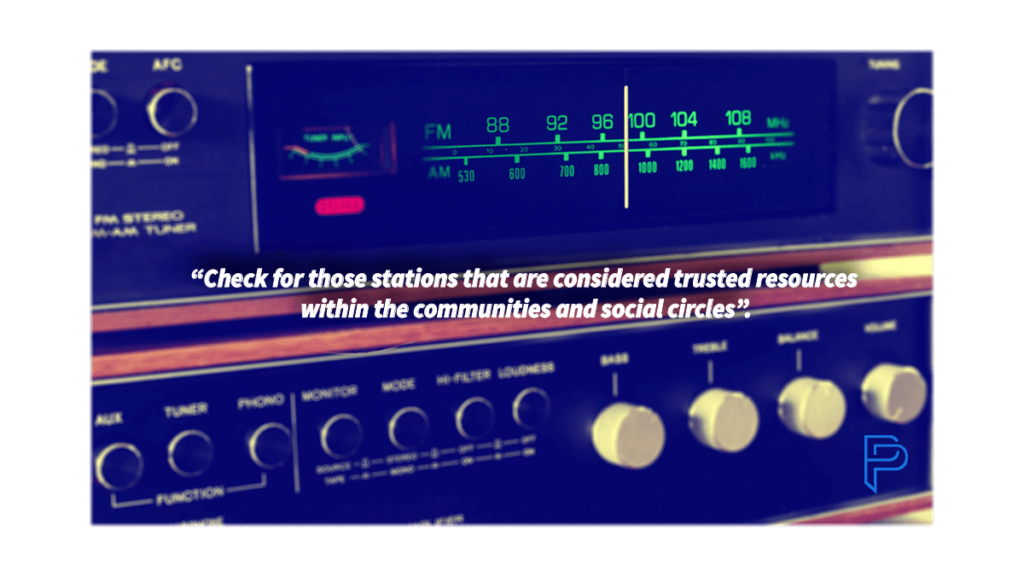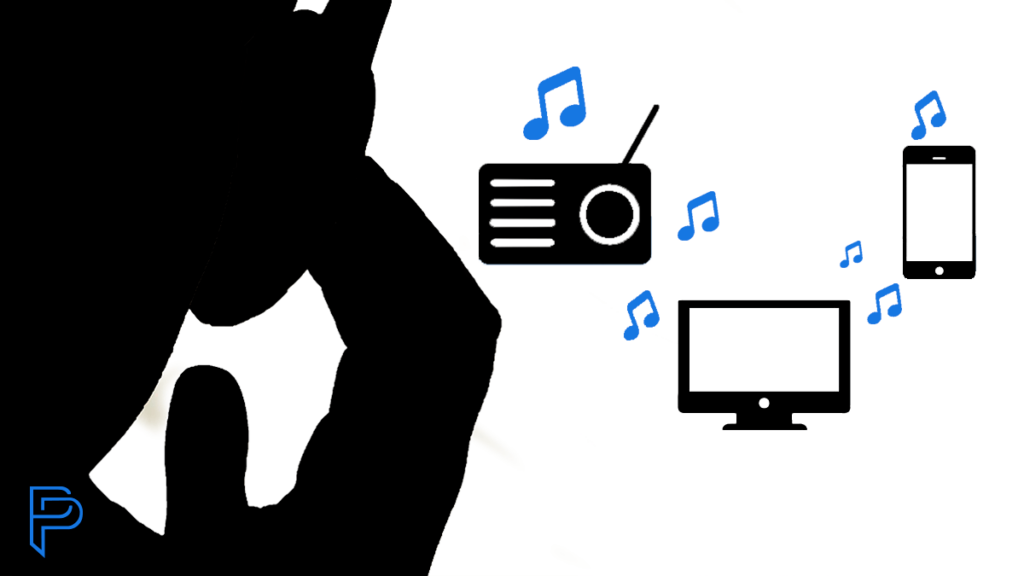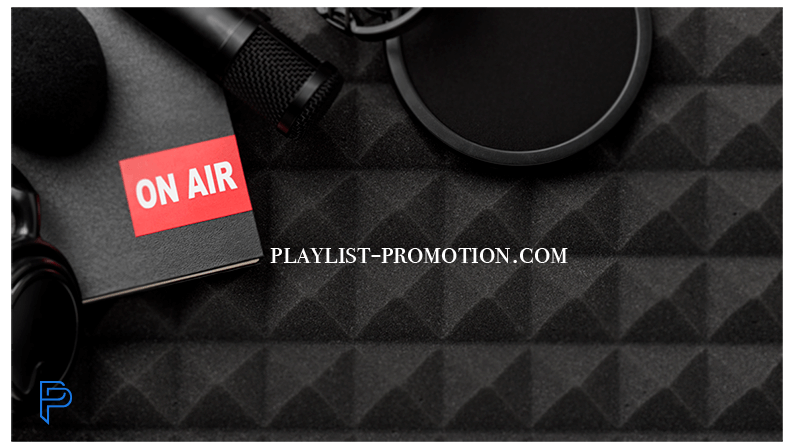Radio Stations are playing an extremely relevant and pivotal role within the music industry. Radio has a firm grip on the American public, with over 91% of people tuning in weekly. This number speaks volumes about how this radio airtime influences our lives and culture as we know it.
People listen to radio for new music, and for artists it’s a form of connection by way of exposure, exclusivity and curation, which means that there’s no better time than the present to submit music to radio stations and use all the opportunities that this has to offer in a scene that demands a vast amount of exposure to take your music everywhere.
One of the perks of radio is that it is available in almost all automobiles, and can become the first thing your audience tunes into for a variety of content when driving to work, their home or are stuck in traffic. Unlike most streaming services, radio content is absolutely free.
1. Exposure and Exclusivity
Believe it or not, researchers still point to radio as the number one source for the discovery of new music in the United States. Studies have shown that radio is the leading reach platform with 93% of people listening to AM/FM radio, which is higher than TV, PC, smartphone and tablet use. In the U.K., 89% of the total population still tunes in to listen to radio every week. Additionally, 93% of Generation Z listen to the radio for 10 hours or more per week.
The music industry still depends on the radio since it has a broad national reach covering cities and towns creating content that connects cultures and communities. Therefore, some niches can only be reached exclusively through radio. Radio also acts as filter, as the industry is already overwhelmingly saturated. A part of a radio station’s unique job is to find the best music out there, and by having a DJ as a host they can discuss the music that is playing, top artists, and important news about the local and international scene.
It can be an essential medium for upcoming artists, and it is considered fair for some to have their music played on a radio show that is renowned for being exclusive to one music genre. It’s a win-win for radio shows and artists too.
Streaming platforms such as Spotify, TIDAL, Soundcloud and YouTube are open source and accessible to everyone; but radio is not. To get your song on the radio, you need to go through a process that is different from understanding the algorithms; picture it as a video game where you need to prepare for a battle, in this case, with the gatekeepers, they are the wizards of knowledge who are up-to-date with all the music trends and have to deliver quality content to a relevant audience, they can build your profile and also have a close relation with DJ’s and radio pluggers. These are definitely the type of people whose radar you want to be on!
2. The right station to be discover

Quality may vary a lot when you need to take your product to a specific target market, so, as an artist it’s vital to build a brand and platform and have integrity to understand and acknowledge where you want to have exposure and the audience it is your goal to reach. Radio is still the prevailing medium for discovery, which is an important distinction to make for the many circumstances where people will tune in to a familiar station and listen to what’s being featured while focusing on other tasks like cleaning, driving, exercising or getting ready to go out.
There’s a difference between creating a playlist on Spotify or SoundCloud just because, and someone who takes the time to carefully curate a show that will resonate with listeners. You will have to decide if you want your music to be played on a commercial radio station, which is focused on popular demand, or non-commercial, which works more on exposure, involvement with the community and listeners with the same music taste.
Get ready to use your business network for sending songs to radio stations, it will help you get ahead. If you have already made some connections with radio producers, DJs and presenters, this is the perfect time to keep building those connections and let them know when you have new material coming out, you never know who’s looking to discover the next top artist.
A great radio station will always be connected to the local scene and community, and will be on the forefront of breaking news, music releases and any content pertinent to its audience. Check for those stations that are considered trusted resources within local communities and social circles. Indie radio stations (KEXP or BBC 6) are a good example of this because of the unique content they produce such as in-studio performances or exclusive interviews, generating unique experiences and elaborating on certain perspectives which would not likely be portrayed elsewhere.
Even good local press or college radio helps, and an active social media presence look into stations and anywhere that you think could support your music, even podcasts.
3. Choose wisely
If you’re still deciding whether to choose radio or an online streaming service to get your music out there, keep in mind that it will depend a lot on your goal as an artist. If your marketing plan is focusing on becoming famous online, locally, nationwide or worldwide, and the timeframe you want that to be accomplished in, every platform has a role to play in getting your song to become a household name, and Radio is just a part of the big picture.

Understanding your style, goals, and how you project yourself as an artist will help you decide if radio, online streaming, or both are the correct channels for you. Investigate how to submit music to individual stations, go onto their websites and get in touch with them and start networking, remember that in this profession relationships help!
In contrast to social media, listeners can not intervene in a direct way with what is streaming. In the online market anyone can skip your song, unlike on the radio where songs are in rotation during a long period of exposure providing extended potential for discovery among future generations of DJs and programmers.
Things may get tough on your journey to the top, and if you find yourself lacking motivation, remember to enjoy the journey while improving your profile and growing your audience when you’re offstage. In case you’re doing it all by yourself, the best course of action is to inquire where your music fits the best. When pitching your music to local radio, college stations or podcasts, prepare an email, a download link or upload the information on a platform they can get in to have your data. Along the way, don’t forget to align yourself with artists and radio stations that support their colleagues and that you have an affinity with.
4. Radio Campaign
Like any pre-release campaign, you should start pitching at least four weeks before the release date, this will provide the necessary time for any station to add your music to their playlist. You’ll have to email an MP3, promo CD or song link to all the program directors of the stations that you’re targeting. Then, you’ll need about a week for confirmation, feedback and to re-send any additional information that they might ask for.
After the first step is completed, you may also participate in interviews and place ads if the target is a larger market than during the previous week of the campaign, then wait for the results to come in.
The journey to success is a long way to go and can be stressful, even more so when there’s no guarantee that the staff will listen to your song, yet Radio is still one of the best ways to promote your music. Here at Playlist-Promotion.com we can help you by creating promotion packages based on your necessities and sending your music out to thousands of radio stations.
If you need extra assistance on how to get your song on the radio, get in touch with us by clicking the link below:
https://radio.playlist-promotion.com/

5. Monetize your music on radio
Something else that is very important to mention is that you can generate income indirectly with radio music promotion. Any radio play will need to be logged with PRS and PPL, and royalties are paid to members when their work is performed, broadcast, streamed, downloaded, reproduced, played in public or used in film and TV. The rate will vary depending on the size of the station and, of course, how many plays it gets.
The PRS for music (Performing Right Society) and PPL (Phonographic Performance Limited) are two separate collective management organizations, PPL collects and distributes money on behalf of performers and record companies for the use of their recorded music. PRS for Music collects and distributes money on behalf of songwriters, composers and music publishers, for the use of their musical compositions and lyrics.
Besides, radio airplay promotion helps artists sell gig tickets, albums, merchandise and also supports your further development when it comes to applying for funding. That being said, the impact of radio play shouldn’t be underestimated!
Diversify your promotional strategy with our services beyond radio promotion. Explore the potential of Spotify playlist promotion and YouTube promotion to boost your content across platforms.
